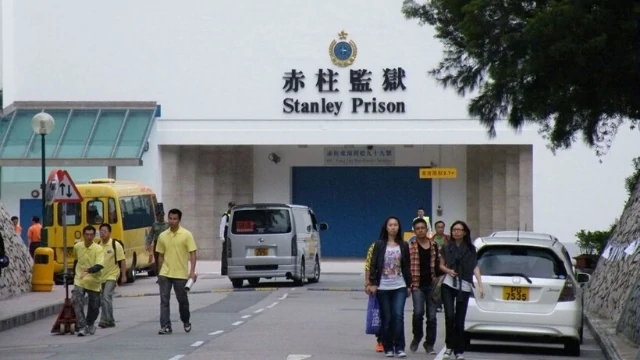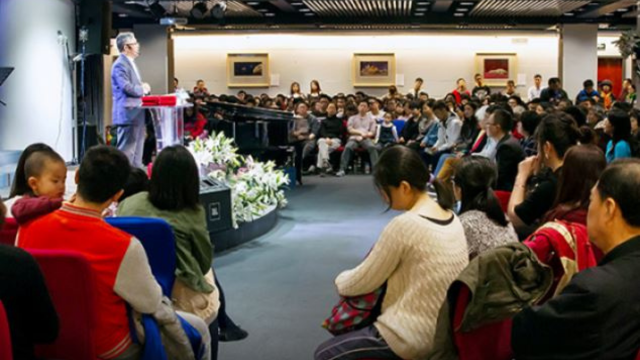Hidden in the new law, a provision states the CCP can now act against every person on the planet criticizing it.
by Massimo Introvigne

Much has been written about the new Law of the People’s Republic of China on
Safeguarding National Security in the Hong Kong Special Administrative Region, whose full text has now been unveiled. The law extends to Hong Kong the anti-subversion provisions existing in Mainland China, making in practice any form of criticism of the CCP a crime, and eliminates the previously existing guarantees for free speech and for a certain independence of Hong Kong courts. It also creates a new agency, the Office for Safeguarding National Security (维护国家安全公署), to enforce the new law in cases the authorities would regard as particularly serious. The Office will largely work im secrecy, and will be able to send the accused to the Mainland to stand trial, thus effectively extraditing them.
While all these clauses have been extensively commented by specialized scholars and observers, and some of them have noted that in fact the control in Hong Kong became even harsher and more repressive than in Mainland China, there is one provision that has not received sufficient attention, and which is truly extraordinary.
It is Article 38 of the new law, providing that, “This Law shall apply to offences under this Law committed against the Hong Kong Special Administrative Region from outside the Region by a person who is not a permanent resident of the Region.” One needs to read it twice before concluding that yes, the law really says that China, or rather the CCP, is asserting jurisdiction against every human being on this planet, and perhaps in other planets too.
I for one am not a permanent resident of Hong Kong. Yet, I am afraid I may commit daily offenses against “this Law.” I violate Article 20, as I write often in support of the right to their historical, cultural, and religious identity of the citizens of Hong Kong, Tibet, and Xinjiang, and I can thus be accused as “separatism,” for which the penalty for crimes of a “grave nature” is life imprisonment. I am also regularly in breach of Article 21, as I criticize and thus “undermine” “the basic system of the People’s Republic of China,” a “basic system” built on the absolute power of the CCP and its ideology. For the systematic and serious violation of Article 21 the penalty, again, is life imprisonment. Worse still, I may be accused of breaching Article 29 by obtaining and publishing in Bitter Winter information not generally known elsewhere and likely damaging the “national security” of China, which would make for a third life imprisonment.
A reasonable person would believe that I should not be concerned with the effects of a Chinese law about Hong Kong, since I am an Italian citizen and write from Europe. The reasonable person would be wrong. Article 38 clearly states that the law also applies to all persons who “are not a permanent resident of the Region” (Hong Kong).
Would it mean that the CCP will come and try to get me in Italy? Perhaps not but, as a leading expert of Chinese law, Professor Donald Clarke of George Washington University, wrote, Article 38 “gives the Law an even broader reach than mainland criminal law. Under mainland criminal law, a foreigner is not liable for an act that’s a crime under the law unless either the act or the effect occurs in China. The [Hong Kong] Nat Sec Law has no such limitation.” Professor Clarke gives the example of a US newspaper columnist who claims that the Chinese occupation of Tibet is illegal, or even who has just “offended the Chinese or Hong Kong authorities” for whatever reason. Under Article 38, he is “liable under the Hong Kong national security law.” He can be arrested if he sets foot in Hong Kong.
And this, argues Professor Clarke, is not all. “Suppose you are the above newspaper columnist and you travel not to Hong Kong but to Beijing. Although you may have committed no crime under PRC criminal law, you have under the [Hong Kong] Nat Sec Law. What if the Hong Kong authorities ask the mainland authorities to detain you and send you down to Hong Kong? Will the mainland authorities turn them down?” Probably not. And the Chinese territory includes Chinese and Hong Kong aircrafts (explicitly mentioned in the new law), and Chinese embassies throughout the world.
The Chinese claim of a planetary jurisdiction is clearly preposterous, and illegal under international law. But it doesn’t really matter. Article 38 means that, if critics of the CCP set foot in Chinese territory, broadly considered, they may and will be arrested. If you believe this would never happen in practice, you can just look at what is happening to the Canadian “two Michaels.” It is a different case, but is governed by the same perverse logic.
It is a shame that only 27 countries (plus the United States, which did not sign because of their problems with the Human Rights Council) have supported the U.K.’ statement at the United Nations condemning human rights violations in Hong Kong and Xinjiang (while 53 countries, whose list has not been made public, became part of a new “axis of shame” by signing a statement drafted by Cuba supporting China).
The names of the 27 countries who signed to support freedom and human rights are worth publishing: Australia, Austria, Belgium, Belize, Canada, Denmark, Estonia, Finland, France, Iceland, Ireland, Germany, Japan, Latvia, Liechtenstein, Lithuania, Luxembourg, the Republic of the Marshall Islands, the Kingdom of the Netherlands, New Zealand, Norway, Palau, Slovakia, Slovenia, Sweden, Switzerland, and the United Kingdom. Our readers would be smart enough to notice which democratic countries are not there, and guess why. When their citizens will start being arrested in China, they will perhaps change their opinion.
Source: Bitter Winter












